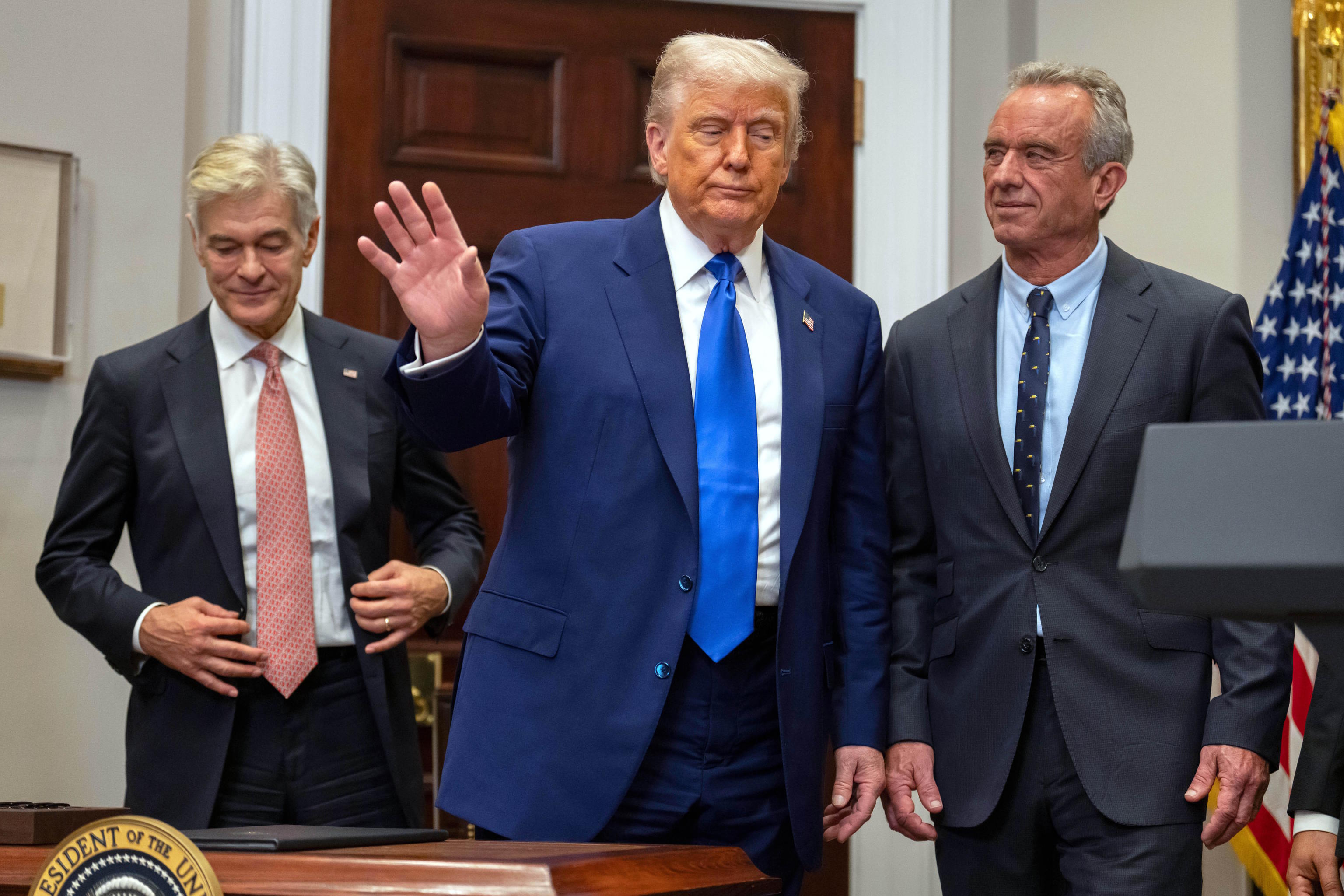Hours after his envoys in Switzerland reached a provisional agreement to temporarily reduce tariff exchanges with China, the President of the United States celebrated the news from Washington. In a press conference to announce his plan to reduce drug prices, Donald Trump stated that he plans to speak with Chinese President Xi Jinping, "perhaps by the end of this week." He took the opportunity to criticize the European Union and pharmaceutical companies, "the most powerful lobby in the world."
Trump celebrates progress with China but issues new threats
The US President stated that he believes he will reach a more comprehensive trade agreement with China within the 90-day period established by Washington and Beijing over the weekend. However, he also warned that if there is no agreement, tariffs will not return to 145%, but will be even higher, sending uncertain messages to markets that reacted very optimistically this morning to the news of a temporary truce.
From there, Trump focused his attacks on the Old Continent, holding European countries responsible for the prices that Americans pay for their medicines and explaining how he plans to reverse the situation, using all his power to make Europeans pay more and Americans pay less in the future. "As of today, the United States will no longer subsidize healthcare in foreign countries, as we did before. We are subsidizing healthcare in other countries where they paid a small fraction for the same medication that we pay much more for, and we will no longer tolerate speculation or price manipulation by big pharmaceutical companies. It has been the countries that forced big pharmaceutical companies to do things that, frankly, I'm not sure they were comfortable doing, and they got away with it. These countries, the European Union, have been brutal, brutal. Pharmaceutical companies have told me stories of how it was simply brutal, how they were forced. And the European Union is suing all our companies: Apple, Google, Meta. That will no longer be the case," he stated.
More expensive drugs in the US: Europe is to blame, according to Trump
The President, who seems to have recently discovered through stories told by his friends that pills that cost tens of euros in Europe can cost over $1,000 in New York, has set a 30-day deadline to start negotiating with pharmaceutical companies, emphasizing that even though they are a powerful lobby and have subdued other governments, it will not happen with his, no matter how much they have given him "up to $100 million" in campaign contributions.
"For years, pharmaceutical companies have claimed that research and development costs are what they are, and for no reason, they had to be borne only by the United States. Not anymore, because that means that American patients were effectively subsidizing socialist healthcare systems in Germany and throughout the European Union, because they are the toughest of all. They have been dirty in that and also in trade. The European Union is in many ways dirtier than China. We have just started with them, and oh, they will come down a lot. We hold all the cards. They have treated us very unfairly. They sold us 13 million cars, and we don't sell them any. They sold us their agricultural products, and we hardly sell them anything. They do not accept our products, and it is very unfair. So they will have to pay more for healthcare, and we will have to pay less," added Trump.
In the President's speech at the White House, there are many elements, some for domestic consumption and some from his traditional view, which sees all exchanges as a showdown and does not conceive a system in which everyone can win something. If Americans pay a lot for their medications, he points out, it is not only because of the healthcare system and the demands of big pharmaceutical companies, but somehow the EU behaves in a predatory manner, which harms Americans.
A redistribution that would not affect pharmaceutical companies
That's why Trump has signed an executive order that he claims will lower drug prices by up to 60%. He asserts that prices will drop, and the United States will not pay more than other developed countries for the same medications. He said that this will not be a problem for companies because he wants to pressure them to cover potential losses by charging more to others. "We are talking about the world, not just the European Union. The companies' figures are not as bad as one might think. They will earn the same... I think they should earn practically the same. I really don't think they will be very affected because it is just a redistribution of wealth. It is a redistribution where there could be the same income, but it will be distributed differently, and Europe will have to pay a little more, the rest of the world will have to pay a little more, and the United States will pay much less," he stated.
The Health Secretary in the Trump administration, Robert Kennedy Jr., for example, indicated that if Europeans agreed to a 20% increase in the price of their medications, this would allow pharmaceutical companies to allocate an additional $10 billion to innovation.
The method to achieve this is not very clear, but the President of the US has pointed to trade restrictions once again. "If necessary, we will investigate pharmaceutical companies, especially the countries that do it, and we will add it to the price we charge them for operating in the United States. In other words, we will add it to tariffs," he insisted.
